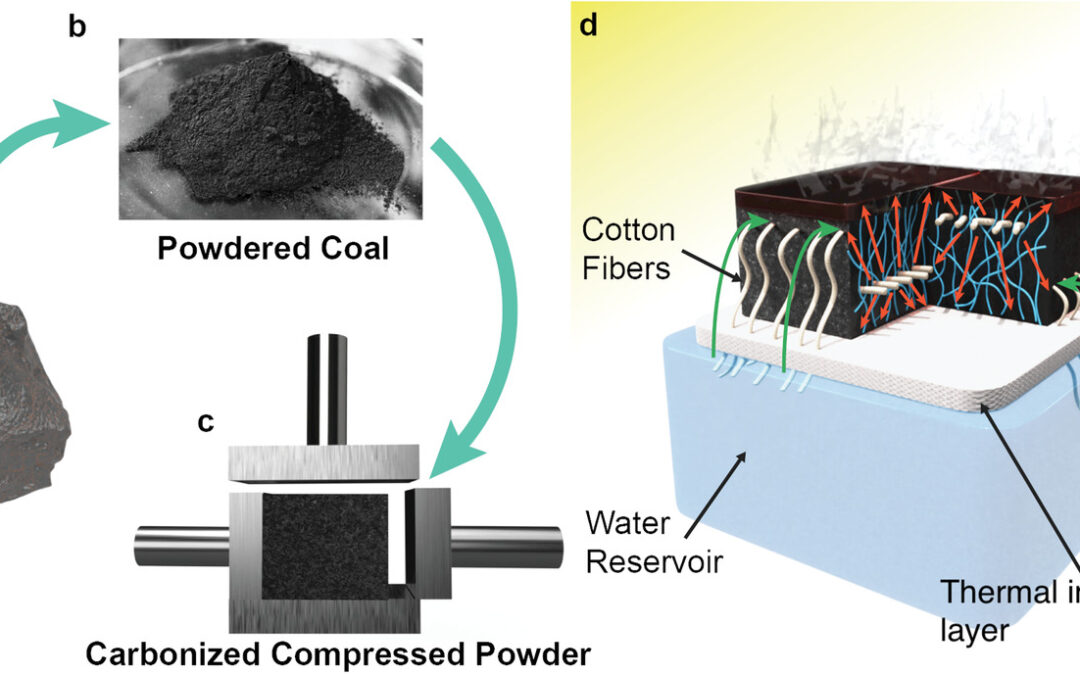While renewable power available worldwide costs increasingly less than the least expensive option based on fossil fuels, countries continue to increase their coal-fired capacity, which should conversely fall by 80% within a decade to limit global warming effects. To address the challenges to the implementation of such an aim, here, a path is explored that leverages on a previously unrecognized aspect of coal, opening to a new solar-driven carbon cycle that is environmentally friendly. By engineering the porosity matrix of coal into a suitably designed compressed volumetric structure, and by coupling it with a network of cotton fibers, it is possible to create a record performing device for freshwater production, with a desalination rate per raw material cost evaluated at 1.39 kg/h/$ at one sun intensity. This value is between two and three times higher than any other solar desalination device proposed to date. These results could envision a clean and socially sustainable cycle for carbon materials that, while enabling an enhanced water economy with global access to freshwater and sanitation, poses zero risks of reinjecting CO2 into the environment through competing economies in the fossil’s market.
Read more in Advanced Sustainable Systems 202100217 (2021)


Recent Comments